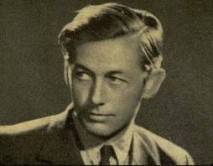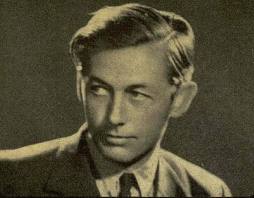Actueel / Profile on Robert Bresson

|
a profile on robert bresson by Jaap Mees
Cahiers du Cinema Robert Bresson was born in Bromont-Lamothe in Puy-de-Dome.(1907) His father was an officer. Initially Bresson worked for a short time as a painter, but turned to film in the early thirties. In 1932 he made his first short film the comical farce ‘ Les Affaires Publique’. After this film Bresson worked with artists like Antoine de Saint Exupery and Rene Clair. In 1949 he started a film-magazine, which later on became the wellknown ‘Le Cahier du Cinema’, together with Roger Leenhardt and Jean Cocteau. His films are often based on books by heavy-weight writers like Dostoevsky (Une Femme Douce, Four Nights of a Dreamer) and Bernanos( Mouchette and Diary of a Country Priest).His frequently returning themes are: suffering often ending in suicide, grace and redemption. What makes his films so unique? Bresson calls his work cinematography, not film, which is more photographed theatre in his opinion. In his vision a film only gets meaning when the individual shots are connected to each other. His second feature ‘Les Dames de Bois de Boulonge was the last film in which he worked with professional actors. Since then he works with, what he calls Models. They are not allowed to act, because the French Master detests theatrical acting. Bresson on his models: "One must not act either somebody else or oneself. One must not act anybody." And: "Models are mechanised externally, but internally free. On their faces nothing wilful. The constant, the eternal beneath the accidental" This approach of directing models, I find disputable, Bresson thinks every emotion displayed by an actor is acted, thus false. But in refusing to allow a model any expression, so according to Bresson the models inner quality will reveal itself, he will take away of that person’s authenticity and spontaneity. This results in a certain liveliness / stillness in his characters. Essence Bresson is one of the first filmmakers who emphasises the importance of sound in his films. A good example is two cars crashing in Au Hasard Balthazar; some oil is put on the street by a streetgang, the first car slips and spins around, of the second one we just hear the crash, so you can make your own image in your head. Bresson: "when a sound can replace an image, cut the image or neutralise it. The ear goes more towards the within, the eye towards the outer." Another essential quality Bresson has, is his sharp and refined eye for detail. You can see he has been a painter, because he not just makes the spectator look at things, but really makes you see them. And he is also a master of casting fascinating and genuinely spiritual looking people. His most wellknown film is arguably ‘Pickpocket’ ('59). It’s about Michel a professional pickpocket, who thinks he is above the law, because he feels himself spiritual superior. The film has a lot of close up’s of hands disappearing in pockets, typical Bressonian. The thief goes abroad for a couple of years, when he returns he is send to prison, where Jeanne, his former neighbour girl visits him. They fall in love.
Personal favourites My personal favourite Robert Bresson films are: ‘Au Hasard Balthasar’(65), ‘Mouchette’(66), ‘A Man Escaped’(56) and ‘Diary of a Country Priest’.(50) ‘A Man Escaped’ is based on the true story of Andre Devigny, a French Resistance militant who escaped from a Gestapo prison in 1943, with the help of a spoon, he uses as file. Bresson himself was a Prisoner of War for 18 months, an experience which had a profound influence on his further life and work. Both Au Hasard Balthazar and Mouchette are stories of individual suffering and crucifixion. In Bathazar the main character is a donkey, who is more humane than most of the people in the film.He is brutalised and exploited by most of them. Only the local girl Marie loves the hardworking and loyal animal. The final scene in which the donkey is killed and dies among a flock of grazing sheep is extremely moving. In ‘Mouchette’, based on Georges Bernanos novel, a fourteen year old girl has to put up with a drunk father, she is bullied at school and has to look after her terminally ill mother. One afternoon this lonely girl is All is Grace Both Balthazar and Mouchette are Christ-like figures, who are being crucified in an uncaring and cruel society. ‘Diary of a Country Priest’ has a protagonist, a country Priest, who suffers from severe stomach cramp. He has to put up with the distrust and hostility of the local people. He leads a lonely life and keeps a record of his experiences in his diary. One of the people he visits is a Duchess who has become a cynical atheist, after the death of her son. The priest reconciles her with her fate, eventually she dies peacefully. Robert Bresson is a unique and extraordinary film director. Having seen his films are experiences you don’t forget easily. In all of his work he underlines the importance of the saying less is more, so essential in good film making. Or in his own words: “you don’t create by adding, but by taking away.” In modern cinema your senses are often bombarded with brutal images and blatant sound. Too much music, too much (over)-acting and too much domination, especially in main stream cinema, of special effects. It’s a breath of fresh air to see the oeuvre of a true artist like Robert Bresson, who stays loyal to his inner vision and doesn’t compromise. This is also clear in the following Bresson quote: “The future of cinematography belongs to a new race of young individuals, who will shoot films by putting their last penny in to it, and who will not be taken in by the material routines of the trade.”
|
 |


